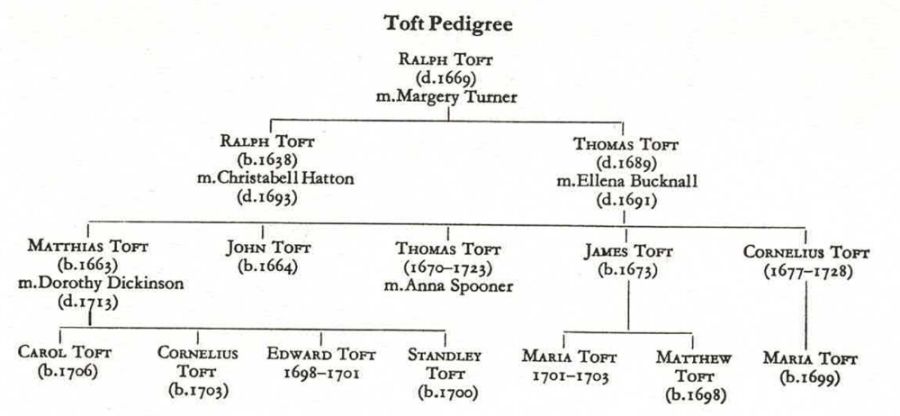![]()
|
Toft family of slipware potters |
Location and period of operation:
|
Thomas Toft |
Tinkersclough area of Hanley |
c.1620 |
1689 |
Most famous; signed chargers; wide range of designs |
|
Ralph Toft |
active 1670s |
Thomas’s brother; fewer signed works survive |
||
|
James Toft |
late 17th c. |
Son of Thomas - continued tradition; works less common |
||
|
Cornelius Toft |
late 17th c. |
Son of Thomas - nnown mainly from records, few surviving pots |
||
|
The
Toft family were pioneers of English slipware pottery, transforming folk
art into a recognisable and collectible style.
Thomas Toft (c.1620–1689)
Ralph Toft (fl. c.1670s)
James, Cornelius, and Other Tofts
|
Relevant links:
| Thomas Toft | The Toft family at Tinkersclough |

Toft Pedigree
Makowitz W & Haggar R G (1957) Concise Encyclopedia of English Pottery and Porcelain, André Deutsch Ltd, London p 223
Questions, comments, contributions? email: Steve Birks
|
Page created 9 Sept 2025 |